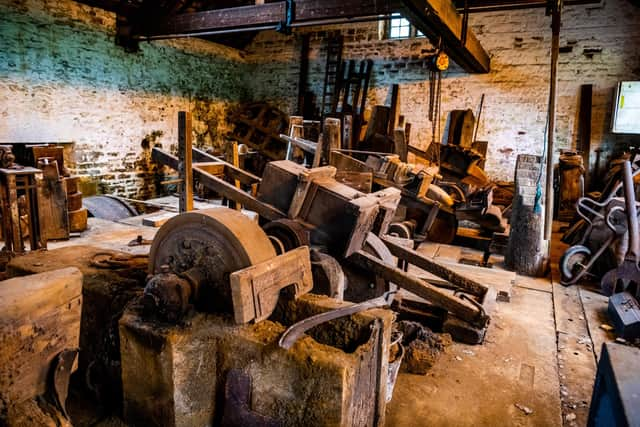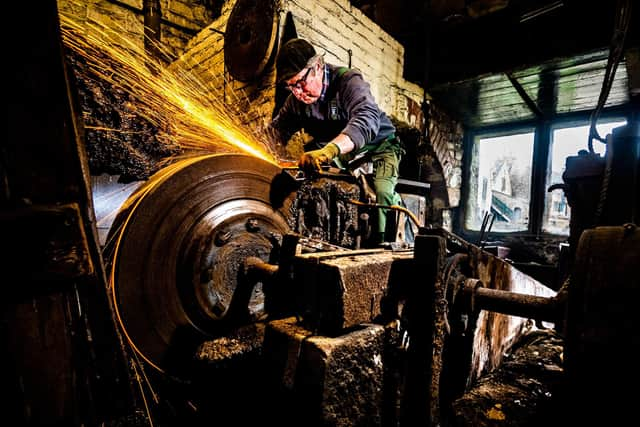How Sheffield rose to worldwide acclaim for manufacturing steel and cutlery
The water wheels still power the machinery, just as they have for centuries, and with each revolution they turn the pages of Sheffield’s proud industrial history.
Abbeydale Industrial Hamlet is a living reminder of how the Steel City developed into one of the world’s greatest workshops with an unrivalled reputation for manufacturing metalwork of the highest quality.
Advertisement
Hide AdAdvertisement
Hide AdAs traditional grinder Peter Gribbon puts more than 40 years of experience into making a sword, he is the embodiment of that tradition, the story of which is told by the museum.


But it was more everyday items that forged the hamlet’s place in Sheffield’s history. Agricultural tools, especially scythes, were made here by highly-skilled craftsmen working at the blowing engine, grindstones and boring machinery powered by huge waterwheels, fed by the River Sheaf through the site’s dam. The biggest of the wheels, 18ft in diameter, would generate about 30 horsepower.
Water power drove the development of industry in Sheffield, especially the early manufacture of cutlery that made the city world famous, with the rivers supporting more than 160 mills in the 17th and 18th century before steam engines provided the main power source.
The Abbeydale Works was the largest-water powered site on the Sheaf, and its records go back to 1713. It expanded in the decades that followed and remained in production until 1933 when the firm of Tyzack Sons and Turner, which had been tenants since 1849, relocated.
Advertisement
Hide AdAdvertisement
Hide AdBut Abbeydale still had its part to play in Sheffield’s manufacturing, with its Crucible Furnace being brought back into use during the Second World War to help meet demand for high-quality steel. The furnace is the only one of its kind in Britain to survive intact.


The site was donated to the city in 1935 and opened to the public in 1970. Today, Abbeydale Industrial Hamlet takes visitors on a journey through the history of the industry that built Sheffield and gained it worldwide renown. The story of the people who laboured here is also told by the workshops and cottages, each of them making the label “made in Sheffield” a guarantee of quality.
www.sheffieldmuseums.org.uk